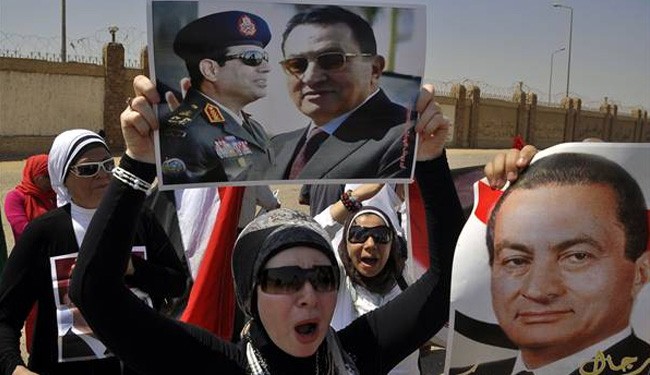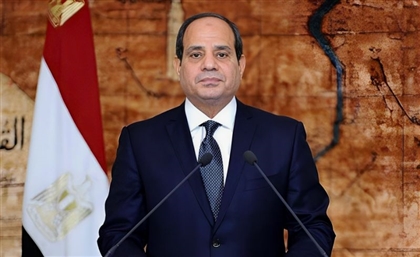Welcome Back to Mubarak
Most Egyptians are happy to suffer from collective amnesia, but Sisi's electoral plan, as well as the general atmosphere these days, are starting to look eerily similar to a certain former president's regime.

Abdel Fattah al-Sisi has finally released a detailed election plan just a couple of days before Egyptians head to the polls.
And unsurprisingly to some - the results directly mirror a similar plan first trumpetted by Sisi's spiritual father - former dictator Hosni Mubarak - as far back as 1985.
The colour-coded rendering of "The Map of the Future" is designed to reassure Egyptians that he is serious about attracting investment in their battered economy.
But the idea is nearly 30 years old, and was never implemented because of its high cost.
The news will undoubtedly lead to fresh allegations that the former army chief is a product of the old regime.
The scheme sets out a bare-bones economic vision underpinned by age-old dominance of state institutions, and involves the state building cities in the desert to enable a burgeoning population to live on 100 percent of the land.
Sisi's project includes 48 new cities, eight airports, fish farms and renewable energy projects generating 10,000 MW of power.
However former NASA geologist Farouk El-Baz claims the move echoes a plan he drew up in 1985 - in the fourth year of Mubarak's 30-year rule.
The "development corridor" that Baz designed included a railroad, an eight-lane highway, water and electricity lines and fully developed towns and cities on 10.5 million acres of untouched land west of the Nile.
The plan was eventually dismissed in 2005 thanks to a whopping $23.7 billion price tag.
Moreover, fears of the return of Mubarak's regime and his iron-fisted police state are only strengthened by the reports that 41,000 Egyptians have been arrested since the ouster of former President Mohamed Morsi in July 2013, according to the Egyptian Centre for Economic and Social Rights (ECESR).
The latest ECESR figures state that 41,163 people have been arrested since July 3, 2013 until May 15, 2014.
The majority are believed to be social, labour or political protesters.
Meanwhile, others were arrested for allegedly breaching curfews, committing terror acts or belonging to terrorist organizations and involvement in sectarianism.
Watchdog WikiThawra claims that at least 36,478 were arrested during “political events".
Both the figures, and indeed, the Mubarak-style post-election plan will make sobering reading for many as Egyptians prepare to take to the polls tomorrow.
Vote wisely Egypt.
- Previous Article The Celloman Takes Cairo
- Next Article Heineken Sandbox Line-Up!
























